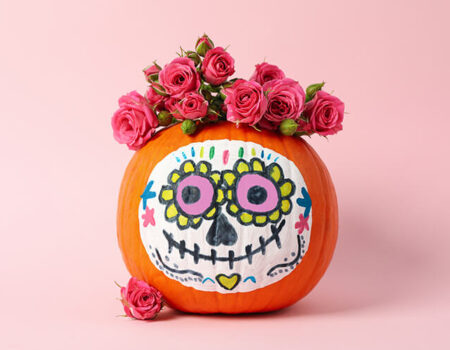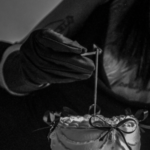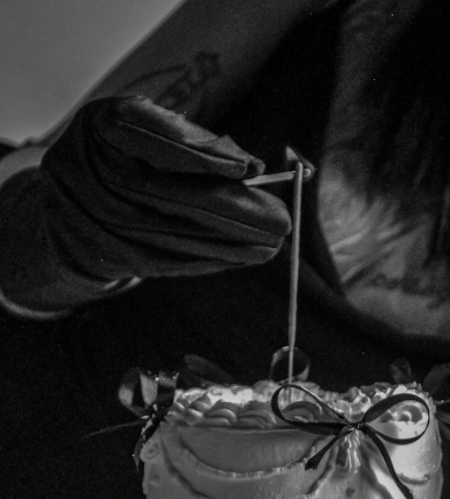The Fragility of Friendships
It’s easier to keep things glued than unglued. When something starts to tear away from the foundation, the next steps of trying to figure out how to keep it together can either be difficult—or lead to giving up entirely without truly understanding the root of the problem. Sometimes it’s both. This makes maintenance feel like a burden, or worse, creates unnecessary drama just to keep things interesting.
The Beginning of Friendship
At the start of a friendship, the novelty and excitement take over. You’ve found someone who understands a part of you that maybe no one else has seen. That kind of connection is rare and special, which is why we don’t talk enough about the pain of losing it.
When you share a side of yourself with someone, it’s either a part that’s been there all along, just waiting to bloom—or it’s a version of you that only started to emerge because of that friend. There’s a unique freedom in friendships. Unlike romantic relationships, they often come with less pressure and more fluidity. You get to enjoy someone’s presence without obligation, which makes it all feel so natural and exciting.
When That Comfort Fades
But what happens when that excitement starts to fade? When the comfort turns to discomfort, or worse, emotional exhaustion? Are you able to recognize when a friendship is no longer serving you? Or are you scared to let go because of what their presence—or absence—represents in your life?
Often, the fear of losing someone is rooted in insecurity, a lack of boundaries, or the fear of being alone.
Signs of a Dying Friendship
There are signs we tend to ignore: forgotten milestones, dread around birthdays, boredom, avoidance, constant fighting, a lack of consideration, repeating the same shallow activities, miscommunications, secrets, white lies, manipulation, gaslighting.
When these start to pile up, it’s a red flag. Either the friendship has hit a point of no return, or there were never enough boundaries to help it grow in a healthy way in the first place.
After the End: Grief, Relief, or Both
Once a friendship ends, the emotional aftermath can go in any direction. Sometimes you feel nothing—a quiet acknowledgment that it’s over. Other times, the loss lingers like grief.
You may feel free, finally unburdened by their behavior. But that doesn’t mean the grief isn’t real. You’re mourning a version of yourself that existed in that friendship, and that’s something to acknowledge.
The Cycle & Accountability
One of the most draining dynamics is the cycle. If you find yourself having the same conversations, same fights, and nothing ever changes—even after you’ve tried to communicate—that’s the sign.
Breaking the cycle isn’t just about distancing yourself. It requires change—either pulling yourself out or both people choosing to grow. It takes emotional maturity, self-awareness, and mutual respect. Unfortunately, many friendships end not because of a lack of love, but because of poor communication and no accountability.
The Turning Point: Awareness and Boundaries
When the cycle continues, you start questioning: are they the issue, or am I? And the answer is: you’re part of the issue, too. You need to evaluate why you feel the way you do and consider your boundaries.
When those boundaries aren’t respected—by them or by you—that’s when drama creeps in. And while drama might keep things exciting, it also stunts your growth. It keeps you stuck in emotional limbo and prevents resolution.
The Toxic Shift
Once a friendship becomes toxic, it becomes harder to see the light. The lack of reinforced boundaries makes everything feel unstable. And even if you recognize the signs, what happens next depends on your emotional investment, your values, and whether there’s still care between you.
If there is, you have to do the hard thing: have honest conversations, take accountability, and reassess the dynamic. If you don’t, the friendship will deteriorate further. And you’ll be left asking: who is this really serving?
A Personal Story: Drama, Red Flags & the Birthday Sign
If you’ve ever had a friend who could conjure drama out of nowhere just to start a fight, you probably have stories for days. I do. But at this point, I’m too emotionally drained to tell them all.
What I do remember are the small things that slowly became big things. The nitpicking, the passive aggression, the eye rolls, and the constant feeling of being on edge.
It’s the subtle behaviors that start to erode the foundation of a friendship, and eventually, you can’t ignore them anymore.
The Emotional Toll & Unequal Investment
Despite her flaws, people loved her. She was magnetic, fun, and charming to strangers. But once you got to know her, that’s when the cracks started showing. She pretended to care, and when she did make an effort, it felt forced.
Looking back, I see how many signs I ignored. But the one that stuck with me? Not wanting to celebrate her birthday. That’s when I knew something had shifted irreparably.
I found myself constantly giving: offering advice, emotional support, my time. She would vent endlessly but disappear when I needed support. And when she did show up, it felt like a performance—more for her benefit than mine.
The Harsh Truth: They Don’t Respect You
When a friend repeatedly crosses your boundaries, compares your friendship to others, or makes you feel unseen—it’s not just inconsiderate. It’s toxic.
And if they can sense that you don’t respect yourself enough to demand more, they won’t either. They’ll twist conversations to center their own experience. They’ll make sure the only person who gets comfort or validation is them.
The Birthday as a Symbol of It All
Which brings me back to birthdays. A moment that should feel joyful began to feel like dread. You pretend to care, pretend to show up, even though you’re emotionally tapped out.
Why? Because you’ve already given so much and received so little in return. And that’s the sign your subconscious has already accepted: the friendship is over.
You’re just waiting for the courage to say it out loud.
Choosing Yourself
Friendship breakups are hard—not because you stopped caring, but because at one point, you really did. You loved them. You grew with them. Maybe you even saw them as family.
But part of growth is knowing when to walk away. It’s realizing that love without respect, empathy, and balance isn’t enough to keep something alive. When the emotional labor becomes one-sided and the joy is replaced by dread, you owe it to yourself to let go.
Choosing yourself isn’t selfish. It’s survival. And sometimes, the real heartbreak isn’t losing them—it’s finally choosing you.

















